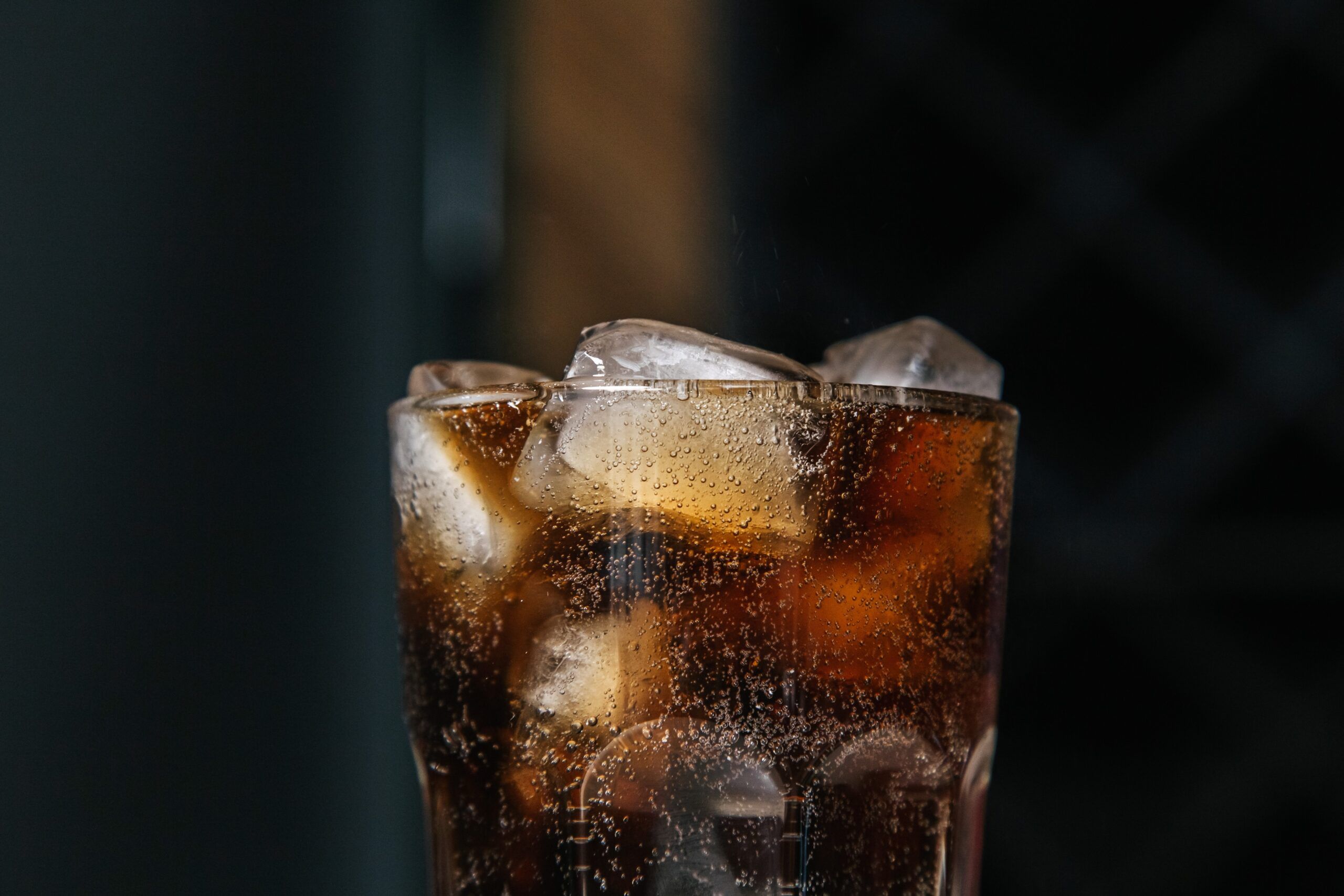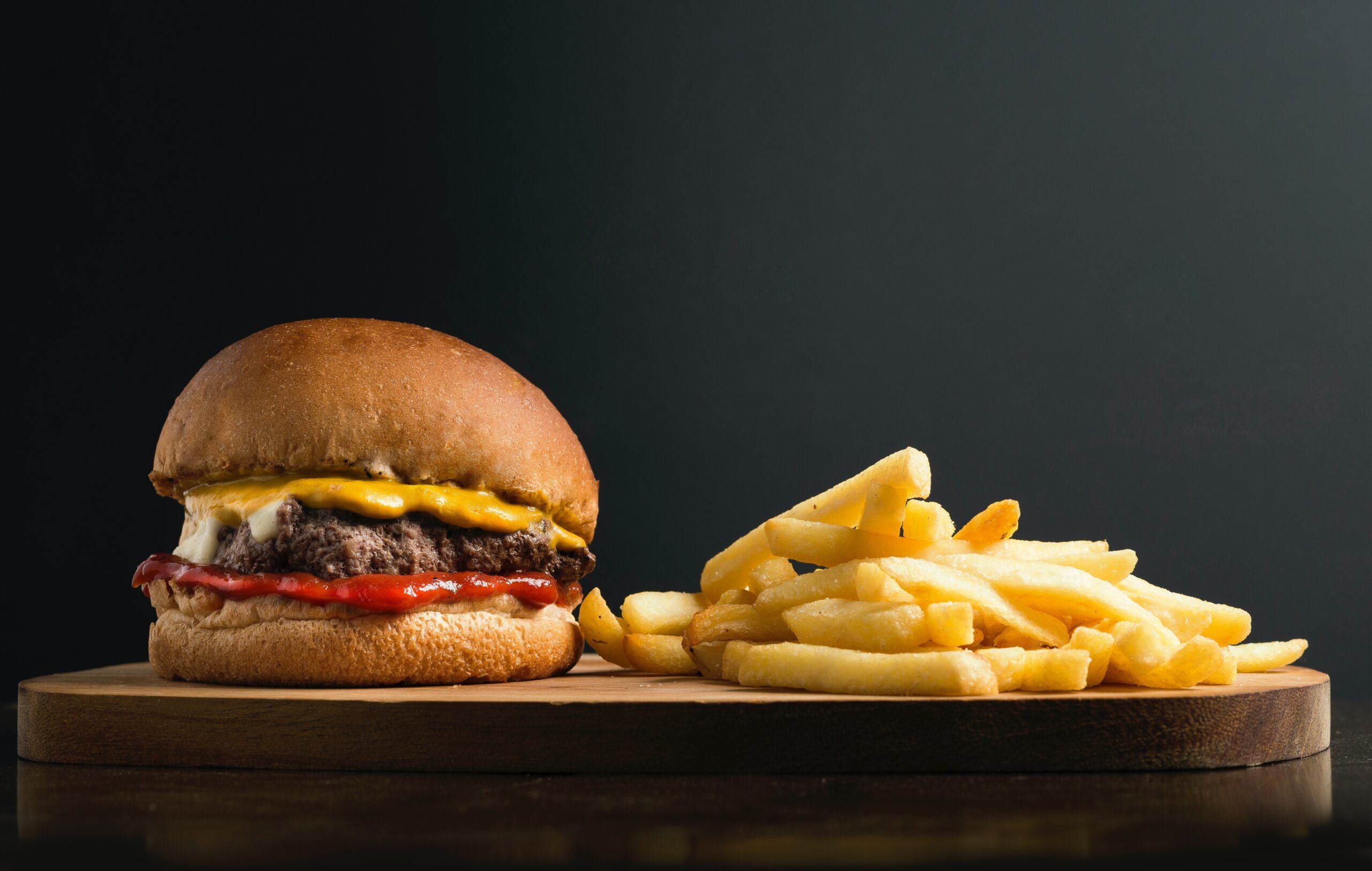When it comes to achieving a flatter belly, what you eat can play a significant role. While exercise is important, you can’t outrun a bad diet. Therefore, it’s essential to choose foods that are not only healthy but also help reduce bloating and inflammation. Here are 10 foods to eat (and avoid) for a flatter belly:
1. Eat more fiber-rich foods:
Eating fiber-rich foods is an important step towards achieving a flatter belly. Not only does fiber help keep you feeling fuller for longer, but it also plays a vital role in maintaining healthy digestion.

Soluble fiber, found in foods like oats, beans, and apples, absorbs water and forms a gel-like substance in the digestive tract. This slows down the digestion process, keeping you feeling full for longer periods of time. Insoluble fiber, found in foods like whole grains, nuts, and vegetables, adds bulk to your stool, helping it move through your digestive system more easily.
In addition to keeping you feeling full, fiber also plays a role in reducing bloating and preventing constipation. When you eat foods that are low in fiber, food moves more slowly through your digestive system, increasing the likelihood of bloating and constipation.
However, when you eat foods that are high in fiber, food moves more quickly through your digestive system, reducing the likelihood of these uncomfortable digestive issues.
Some great sources of fiber include fruits like raspberries, pears, and apples; vegetables like broccoli, sweet potatoes, and brussels sprouts; whole grains like quinoa, brown rice, and oats; and legumes like lentils, chickpeas, and black beans.
Incorporating these foods into your diet can help you reach your daily fiber intake goals and improve your overall digestive health.
2. Avoid processed foods:
Processed foods are often high in calories and low in nutrients, making them a poor choice for maintaining a healthy diet and achieving a flatter belly. These foods often contain high levels of added sugars, unhealthy fats, and sodium, which can all contribute to bloating, inflammation, and weight gain.
Added sugars, for example, can cause blood sugar levels to spike and lead to increased belly fat over time. Additionally, processed foods can be high in unhealthy trans fats, which have been linked to an increased risk of heart disease.
To avoid these negative effects, it’s best to choose whole foods that are minimally processed. These foods are often high in nutrients, fiber, and water, which can help keep you feeling full and satisfied without causing bloating or inflammation.
Whole fruits and vegetables are great choices, as they contain a variety of vitamins and minerals that can support overall health. Whole grains are another excellent choice, as they are high in fiber and can help keep your digestive system functioning properly.
To make healthier choices, try incorporating fresh, whole foods into your meals and snacks. Choose fresh fruits and vegetables over canned varieties, which can be high in added sugars and sodium.
Opt for whole grains like brown rice, quinoa, and whole wheat bread instead of refined grains like white bread and pasta. By making these small changes, you can improve your diet and achieve a flatter belly over time.
3. Drink plenty of water:
Drinking enough water is essential for maintaining good health, including healthy digestion and reducing bloating. When we don’t drink enough water, our bodies can become dehydrated, which can lead to constipation and bloating. Drinking water can help keep things moving through the digestive system and prevent constipation, which can lead to a flatter belly.

To ensure you’re drinking enough water, aim to drink at least eight glasses of water per day. However, your specific water needs may vary based on your activity level, climate, and other individual factors. It’s always a good idea to check with your healthcare provider to determine the right amount of water for your individual needs.
If you struggle with drinking plain water, there are many ways to make it more appealing. Infusing water with fruit or herbs can be a great way to add flavor and make it more enjoyable to drink.
For example, adding lemon or cucumber slices to your water can add a refreshing taste, while adding mint or basil can give it an herbal twist. You can also try drinking herbal tea, which can count towards your daily water intake and provide additional health benefits.
In addition to drinking water, it’s important to avoid dehydrating beverages like alcohol and sugary drinks. These drinks can contribute to dehydration and bloating, which can make it harder to achieve a flatter belly.
By making water a priority and avoiding dehydrating beverages, you can help keep your digestive system functioning properly and reduce bloating over time.
4. Avoid carbonated drinks:
Carbonated drinks, such as soda, can contribute to gas and bloating in the digestive system. The carbon dioxide in these drinks can cause bubbles and gas to form in the stomach and intestines, which can lead to discomfort and bloating.
Additionally, many carbonated drinks are high in sugar or artificial sweeteners, which can contribute to inflammation and further exacerbate bloating.

To avoid these issues, it’s best to avoid carbonated drinks as much as possible. Instead, try opting for still water, herbal tea, or other non-carbonated beverages. If you find yourself craving the fizzy sensation of carbonated drinks, try switching to sparkling water. Sparkling water can give you the same sensation without the added sugar or artificial sweeteners found in soda.
It’s worth noting that some people may still experience bloating or discomfort when drinking sparkling water, as it can still contain carbon dioxide. If you find that sparkling water still causes discomfort, it may be best to avoid it as well and stick to plain water instead.
Additionally, if you suffer from conditions such as irritable bowel syndrome (IBS), you may be more sensitive to carbonation and may want to avoid carbonated drinks altogether.
5. Eat more protein:
Protein is a critical macronutrient that the body needs to build and repair tissues, including muscle, bone, and skin. Additionally, protein can help regulate hunger hormones, keeping you feeling full and satisfied for longer periods of time. This can be particularly useful when trying to maintain a healthy weight or lose weight.
There are many great sources of protein that you can incorporate into your diet to help promote a flatter belly. Lean meats, such as chicken, turkey, and fish, are excellent sources of protein that are low in fat. Fish, in particular, is a great source of omega-3 fatty acids, which have been shown to reduce inflammation in the body and promote healthy digestion.
If you follow a plant-based diet, beans, and legumes are excellent sources of protein. They are also high in fiber, which can help keep you feeling full and promote healthy digestion. Some great examples of beans and legumes include chickpeas, lentils, black beans, and kidney beans.
It’s worth noting that while protein is an essential nutrient, it’s important to choose healthy sources of protein. Processed meats, such as deli meats or sausage, can be high in unhealthy fats and sodium, which can contribute to bloating and inflammation.
When selecting protein sources, try to opt for whole foods that are minimally processed, and aim to incorporate a variety of sources into your diet for optimal nutrition.
6. Avoid fried foods:
In addition to avoiding fried foods, there are several other foods to steer clear of if you’re aiming for a flatter belly. Processed and sugary foods, such as white bread, candy, and soda, can cause spikes in blood sugar and contribute to weight gain.
High-sodium foods, such as canned soup and frozen dinners, can lead to water retention and bloating. Instead, focus on incorporating whole, nutrient-dense foods into your diet.

Leafy greens, such as kale and spinach, can help reduce inflammation and provide a host of vitamins and minerals. Fiber-rich fruits, such as apples and berries, can help keep you feeling full and prevent overeating.
Healthy fats, such as those found in avocados and nuts, can aid in digestion and provide sustained energy. By making small changes to your diet and avoiding processed and unhealthy foods, you can achieve a flatter belly and feel better overall.
7. Eat more probiotic-rich foods:
A flatter belly is a goal that many people aspire to, and one way to achieve this is by incorporating probiotic-rich foods into your diet. Probiotics are beneficial bacteria that live in your gut and aid in healthy digestion.
Eating foods that contain probiotics can help promote the growth of these bacteria and improve your gut health. Some of the best sources of probiotics include yogurt, which is often fortified with probiotics, kefir, which is a fermented dairy drink, sauerkraut, which is fermented cabbage, and kimchi, which is a spicy fermented vegetable dish.
These foods can also help reduce bloating and gas, which can contribute to a distended belly. In contrast, there are foods to avoid if you want a flatter belly. Foods high in sodium, such as processed and packaged foods, can cause water retention and bloating.
Additionally, foods that are high in sugar or carbohydrates can lead to bloating and weight gain. To achieve a flatter belly, it’s essential to focus on incorporating probiotic-rich foods into your diet while avoiding foods that can cause bloating and water retention.
8. Avoid sugar and artificial sweeteners:
If you’re looking to achieve a flatter belly, one of the most important dietary changes you can make is to avoid sugar and artificial sweeteners. These substances can contribute to inflammation and bloating, which can make your belly appear distended.
Sugar and artificial sweeteners can also disrupt your gut microbiome and lead to imbalances in the bacteria that live in your digestive tract. Inflammation and imbalances in gut bacteria have been linked to a range of health issues, including obesity, diabetes, and heart disease.
To reduce your intake of sugar and artificial sweeteners, try swapping them out for natural sweeteners like honey or maple syrup. These sweeteners are less processed than sugar and don’t contain any artificial ingredients, making them a healthier choice.
However, it’s still important to use them in moderation as they are still a source of calories. Another option is to use monk fruit or stevia, a natural sweetener derived from a plant, which has no calories and does not affect blood sugar levels.
In addition to avoiding sugar and artificial sweeteners, it’s important to pay attention to the sugar content in other foods. Many processed foods, including condiments, sauces, and dressings, contain hidden sources of sugar.
By reading labels and choosing foods with lower sugar content, you can reduce your overall sugar intake and improve your gut health.
9. Eat more anti-inflammatory foods:
Inflammation can be a major contributor to bloating, which is why incorporating anti-inflammatory foods into your diet can be beneficial for achieving a flatter belly. Anti-inflammatory foods contain compounds that can help reduce inflammation in the body, leading to improved gut health and reduced bloating.
There are many great sources of anti-inflammatory foods, including fatty fish like salmon, mackerel, and tuna, which are rich in omega-3 fatty acids that have potent anti-inflammatory effects.
Nuts and seeds are also great sources of anti-inflammatory compounds. Almonds, walnuts, chia seeds, and flax seeds are particularly high in healthy fats and anti-inflammatory compounds. Berries are another excellent choice, as they are rich in antioxidants that can help reduce inflammation. Blueberries, raspberries, strawberries, and blackberries are all great options.
In addition, leafy greens like spinach, kale, and collard greens are packed with nutrients and are known for their anti-inflammatory properties. They are also high in fiber, which can help promote healthy digestion and reduce bloating.
It’s important to note that while anti-inflammatory foods can be helpful, it’s also important to avoid pro-inflammatory foods like processed and fried foods, sugary drinks, and foods high in refined carbohydrates.
These foods can contribute to inflammation and bloating, so it’s best to limit your intake of them and focus on incorporating more anti-inflammatory foods into your diet.
10. Avoid high-sodium foods:
If you’re looking to achieve a flatter belly, one of the most important dietary changes you can make is to avoid high-sodium foods. Sodium is a mineral that helps regulate the balance of fluids in the body, but consuming too much sodium can cause water retention and bloating. This can make your belly appear distended and uncomfortable.
To reduce your intake of sodium, try using herbs and spices to flavor your food instead of salt. Herbs like basil, rosemary, thyme, and oregano can add flavor to your meals without adding sodium.
You can also try using other seasonings like garlic, ginger, or lemon juice to add flavor. If you do use salt, opt for a high-quality sea salt or Himalayan salt, which contains more trace minerals than table salt.
When shopping for groceries, be sure to read labels and look for low-sodium alternatives. Many processed foods, including soups, sauces, and condiments, are high in sodium. Look for low-sodium versions of these products or try making your own at home. You can also choose fresh or frozen vegetables instead of canned, as canned vegetables are often high in sodium.
Finally, be sure to drink plenty of water to help flush excess sodium out of your system. Dehydration can contribute to water retention, so staying hydrated can help reduce bloating and promote a flatter belly.
>> Explore more articles related to weight loss <<
Conclusion
In summary, achieving a flatter belly requires a combination of healthy eating habits and regular exercise. Eating more fiber, protein, probiotic-rich foods, and anti-inflammatory foods can help reduce bloating and inflammation while avoiding processed foods, carbonated drinks, fried foods, sugar, artificial sweeteners, and high-sodium foods can help prevent bloating and promote overall health. Remember to stay hydrated by drinking plenty of water, and be patient with yourself – achieving a flatter belly takes time and consistency.
